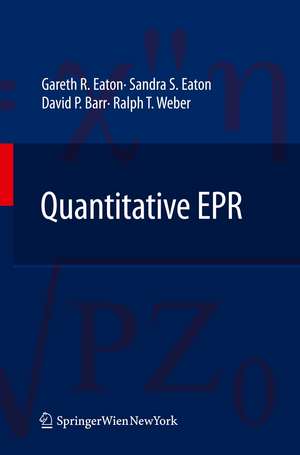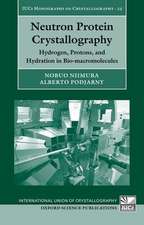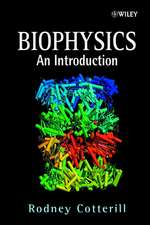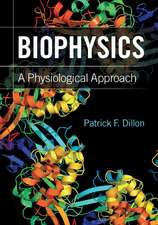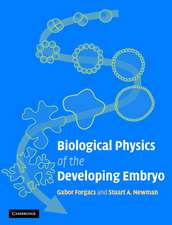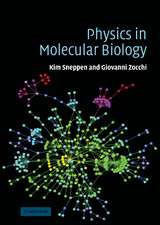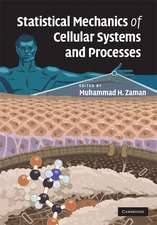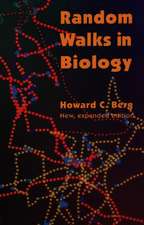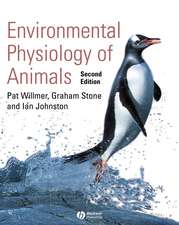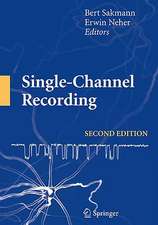Quantitative EPR
Autor Gareth R. Eaton, Sandra S. Eaton, David P. Barr, Ralph T. Weberen Limba Engleză Paperback – 23 noi 2014
| Toate formatele și edițiile | Preț | Express |
|---|---|---|
| Paperback (1) | 891.33 lei 6-8 săpt. | |
| SPRINGER VIENNA – 23 noi 2014 | 891.33 lei 6-8 săpt. | |
| Hardback (1) | 891.92 lei 6-8 săpt. | |
| SPRINGER VIENNA – 23 apr 2010 | 891.92 lei 6-8 săpt. |
Preț: 891.33 lei
Preț vechi: 1086.99 lei
-18% Nou
Puncte Express: 1337
Preț estimativ în valută:
170.56€ • 182.38$ • 142.21£
170.56€ • 182.38$ • 142.21£
Carte tipărită la comandă
Livrare economică 18 aprilie-02 mai
Preluare comenzi: 021 569.72.76
Specificații
ISBN-13: 9783709116814
ISBN-10: 3709116813
Pagini: 200
Ilustrații: XII, 185 p.
Dimensiuni: 155 x 235 x 11 mm
Greutate: 0.45 kg
Ediția:2010
Editura: SPRINGER VIENNA
Colecția Springer
Locul publicării:Vienna, Austria
ISBN-10: 3709116813
Pagini: 200
Ilustrații: XII, 185 p.
Dimensiuni: 155 x 235 x 11 mm
Greutate: 0.45 kg
Ediția:2010
Editura: SPRINGER VIENNA
Colecția Springer
Locul publicării:Vienna, Austria
Public țintă
ResearchDescriere
There is a growing need in both industrial and academic research to obtain accurate quantitative results from continuous wave (CW) electron paramagnetic resonance (EPR) experiments. This book describes various sample-related, instrument-related and software-related aspects of obtaining quantitative results from EPR expe- ments. Some speci?c items to be discussed include: selection of a reference standard, resonator considerations (Q, B ,B ), power saturation, sample position- 1 m ing, and ?nally, the blending of all the factors together to provide a calculation model for obtaining an accurate spin concentration of a sample. This book might, at ?rst glance, appear to be a step back from some of the more advanced pulsed methods discussed in recent EPR texts, but actually quantitative “routine CW EPR” is a challenging technique, and requires a thorough understa- ing of the spectrometer and the spin system. Quantitation of CW EPR can be subdivided into two main categories: (1) intensity and (2) magnetic ?eld/mic- wave frequency measurement. Intensity is important for spin counting. Both re- tive intensity quantitation of EPR samples and their absolute spin concentration of samples are often of interest. This information is important for kinetics, mechanism elucidation, and commercial applications where EPR serves as a detection system for free radicals produced in an industrial process. It is also important for the study of magnetic properties. Magnetic ?eld/microwave frequency is important for g and nuclear hyper?ne coupling measurements that re?ect the electronic structure of the radicals or metal ions.
Cuprins
Basics of Continuous Wave EPR.- Why Should Measurements Be Quantitative?.- Important Principles for Quantitative EPR.- A More in Depth Look at the EPR Signal Response.- Practical Advice About Crucial Parameters.- A Deeper Look at B1 and Modulation Field Distribution in a Resonator.- Resonator Q.- Filling Factor.- Temperature.- Magnetic Field and Microwave Frequency.- Standard Samples.
Textul de pe ultima copertă
This is the first comprehensive yet practical guide for people who perform quantitative EPR measurements. No existing book provides this level of practical guidance to ensure the successful use of EPR. There is a growing need in both industrial and academic research to provide meaningful and accurate quantitative EPR results. This text discusses the various sample, instrument and software related aspects required for EPR quantitation. Specific topics include: choosing a reference standard, resonator considerations (Q, B1, Bm), power saturation characteristics, sample positioning, and finally, putting all the factors together to obtain an accurate spin concentration of a sample.
Caracteristici
Practical guide for people who perform EPR measurements, or supervise the use of EPR spectroscopy
No existing book provides this level of practical guidance to ensure successful use of EPR
Careful attention to the guidance given in this book will ensure qunatitatively accurate EPR spectra
Numerous pictures of the effect of instrument parameters on EPR spectra are included
Includes supplementary material: sn.pub/extras
No existing book provides this level of practical guidance to ensure successful use of EPR
Careful attention to the guidance given in this book will ensure qunatitatively accurate EPR spectra
Numerous pictures of the effect of instrument parameters on EPR spectra are included
Includes supplementary material: sn.pub/extras
